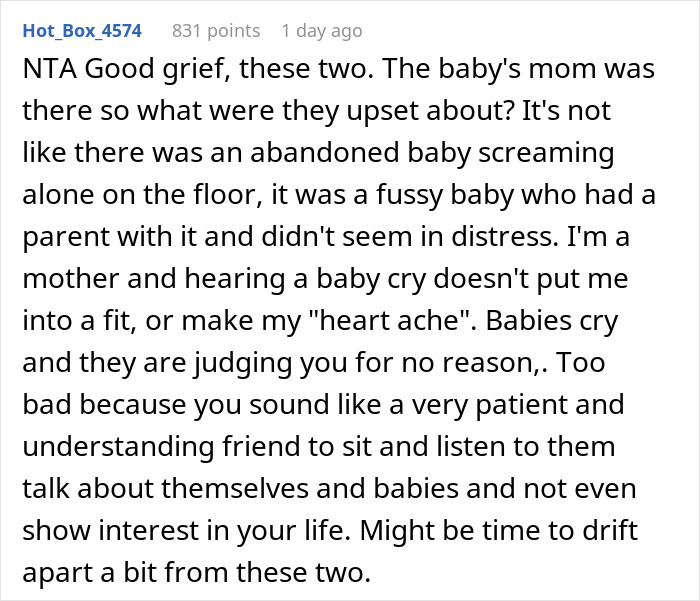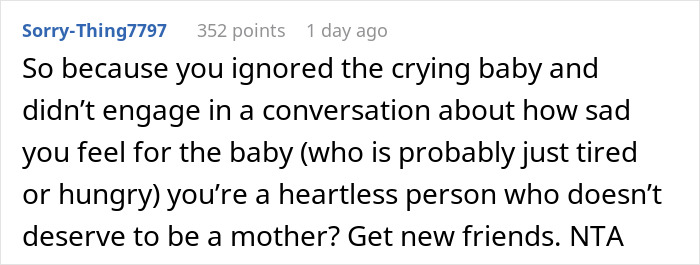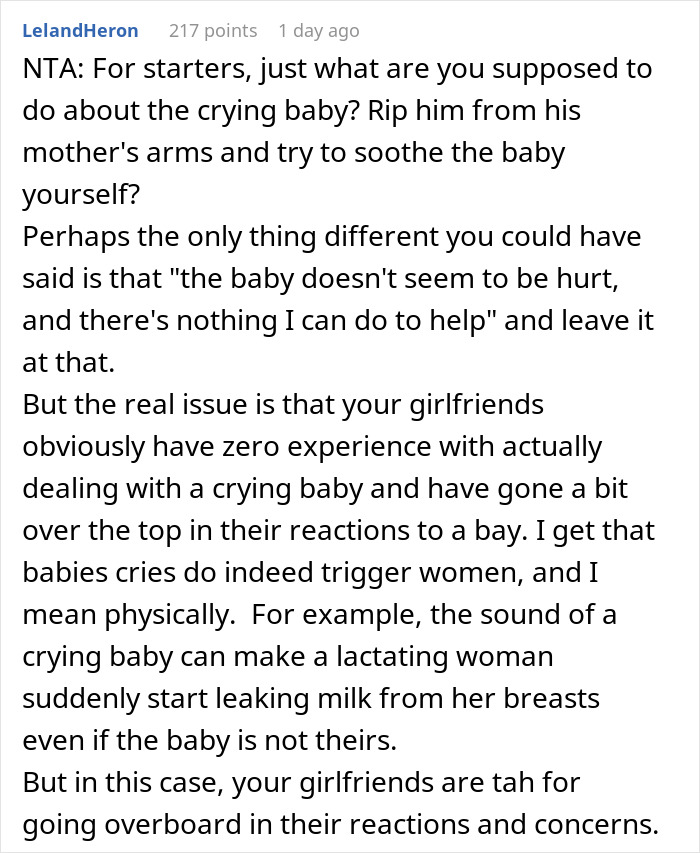More and more adults are choosing not to have children. According to a 2021 Pew survey, 44% of non-parents in the U.S. say that they won’t or are not at all likely to have children someday. It is a big life decision that can impact your friendships and relationships in the long term. Once people have children, they might have less in common with their friends who are not parents.
One Redditor experienced this possible rift with her own friends. As she was out with them – one who’s a parent and the other who’s pregnant – an interesting argument broke out. The friends called out the OP for not responding maternally to a crying baby, calling her “heartless.” Wanting to check if her reaction was as inappropriate as her friends claimed, she turned to the Internet.
Some people might argue that dessert is the best part of a meal at a restaurant

Image credits: Alev Takil / unsplash (not the actual photo)
But this woman didn’t get to enjoy hers because her friends called her out for ignoring a crying baby
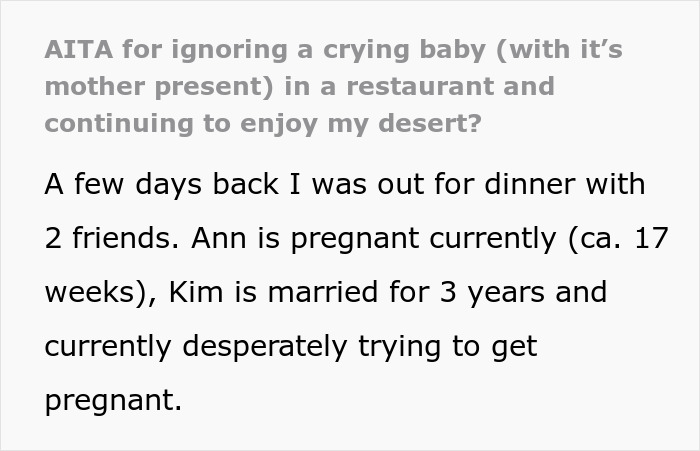
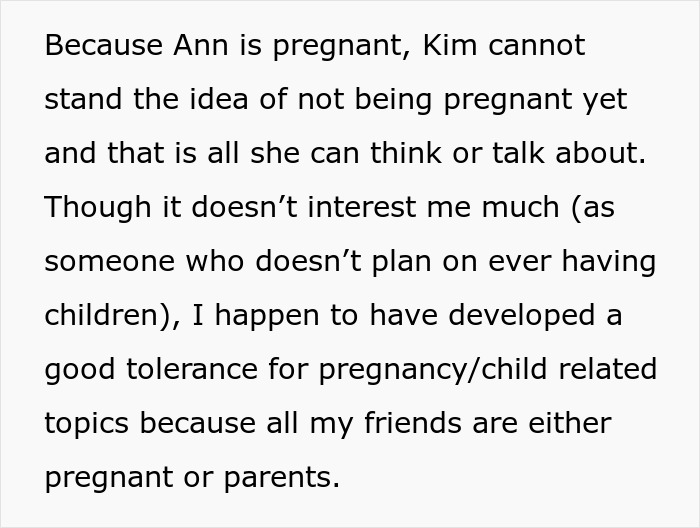
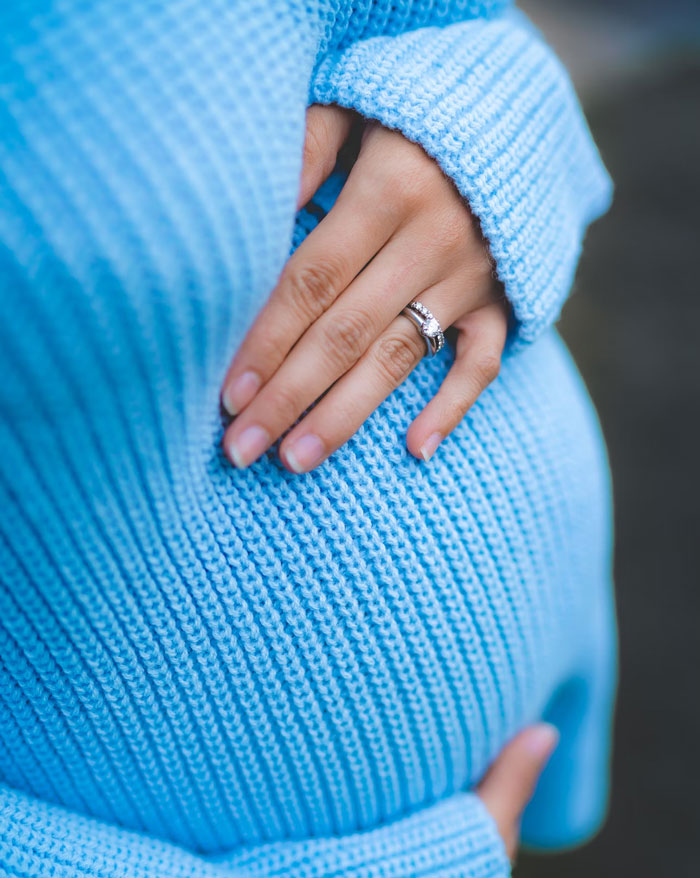
Image credits: Juan Encalada / unsplash (not the actual photo)
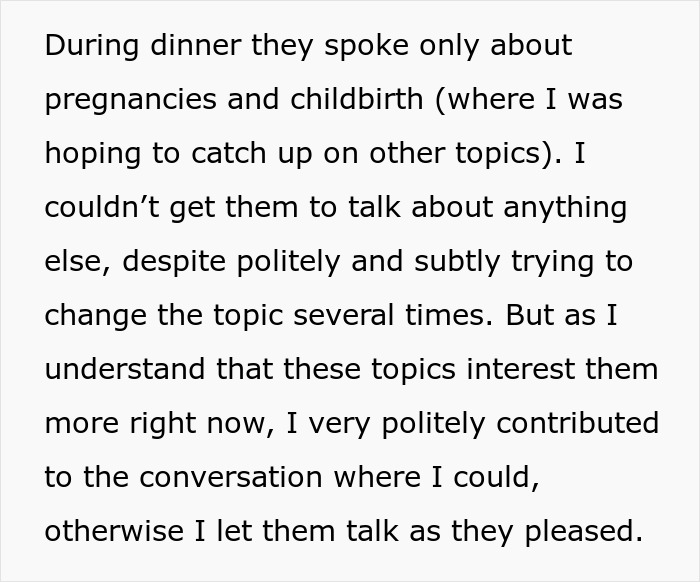
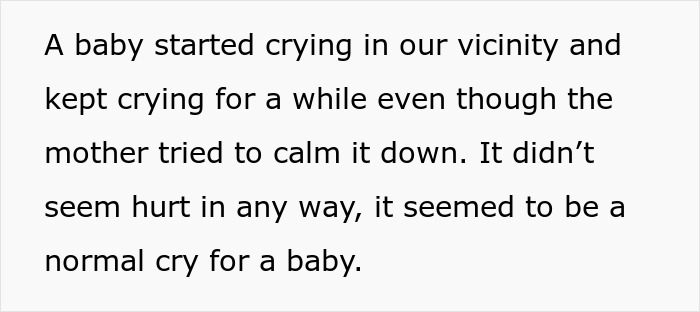
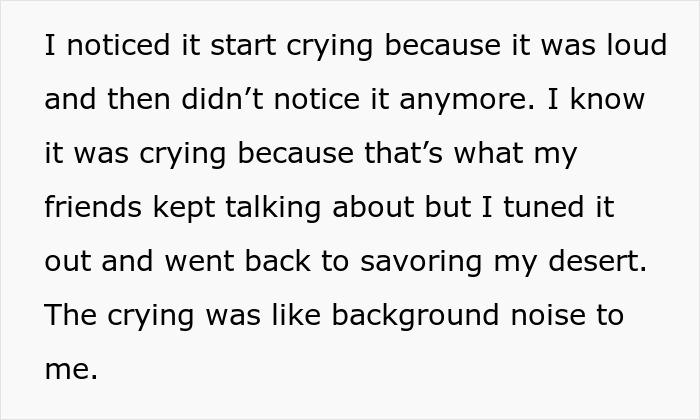
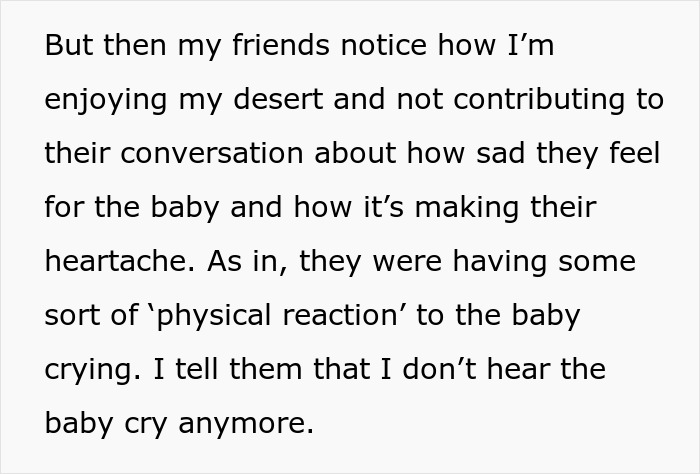
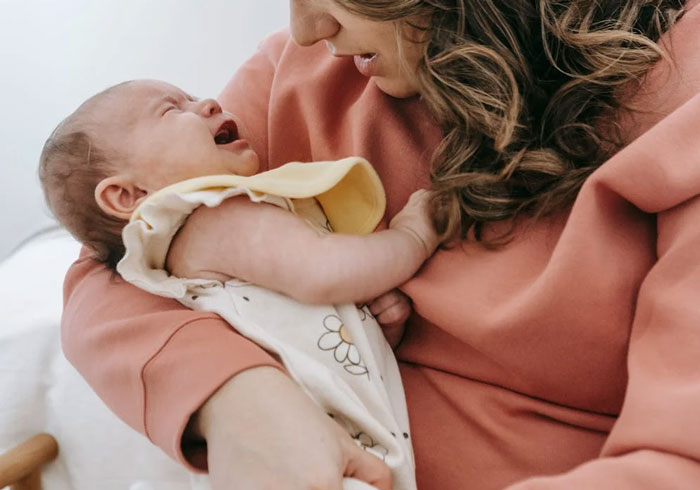
Image credits: Sarah Chai / pexels (not the actual photo)
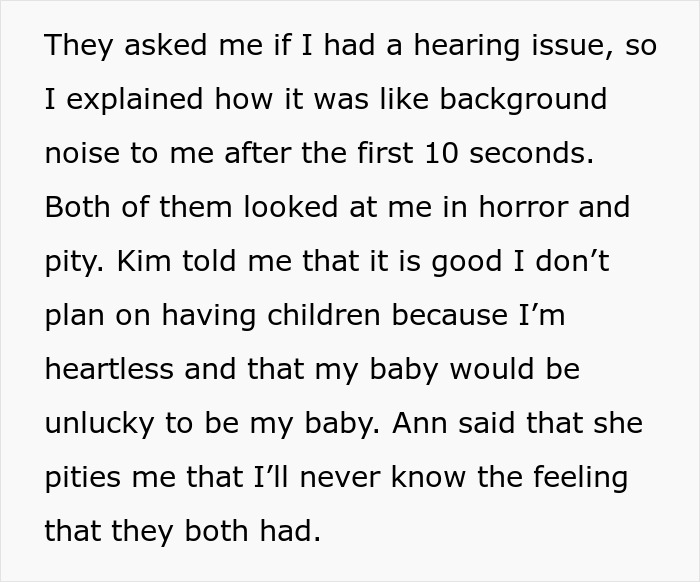
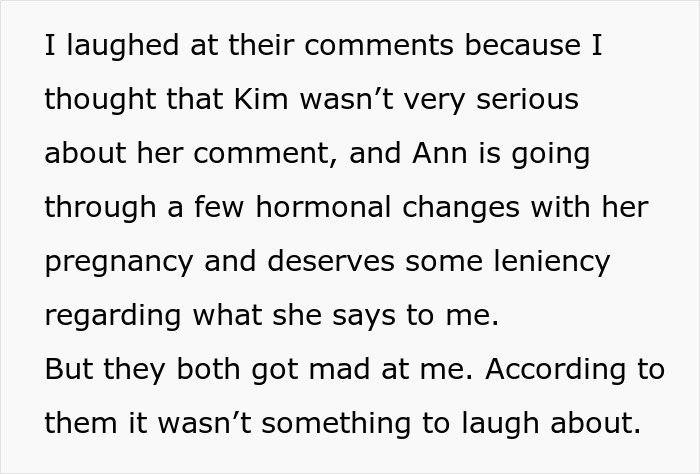
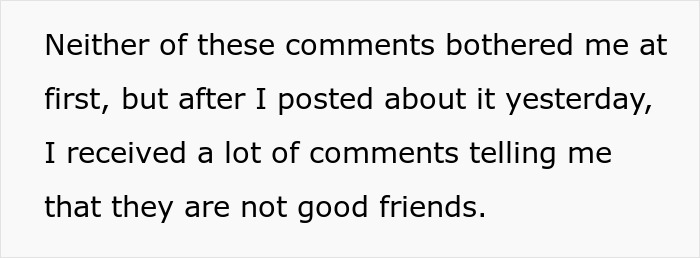
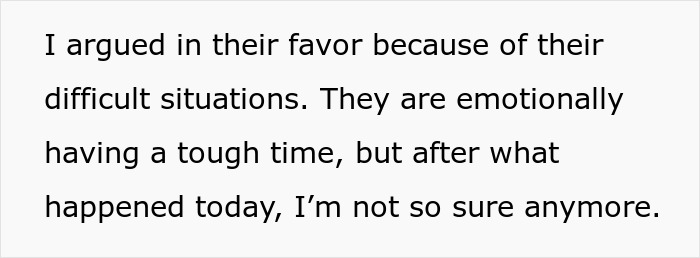
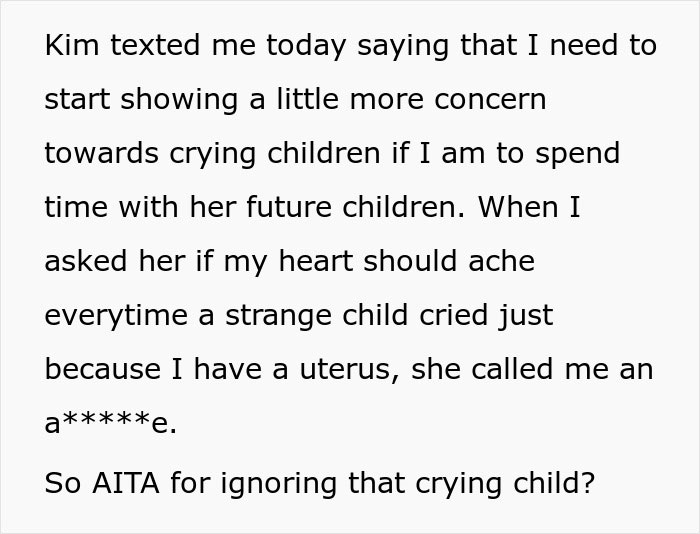
Image credits: pupetteer
Experts say that maternal instinct is a myth

Image credits: Sean Roy / unsplash (not the actual photo)
The main problem that the OP’s friends seem to have had with her reaction was that she didn’t react maternally to the baby’s cries. That was probably due to the widespread myth of maternal instinct. It’s the notion that all women have an innate behavioral response to children and instinctively know how to care for them.
However, psychology professionals no longer believe that this phenomenon is true. Dr. Catherine Monk, a psychologist and professor of medical psychology in the departments of Psychiatry and Obstetrics and Gynecology at Columbia University Medical Center, told Healthline that “the idea of a maternal instinct can be quite exaggerated.”
She says that what people call ‘maternal instinct’ comes from experience. “This ‘maternal instinct’ of a sixth sense for one’s child and what they need comes from intense closeness and deep love, spending hours with and thinking about the child.” So why should a woman respond to the cries of a baby when it’s not even theirs?
Adults who have not had children do react to a baby crying

Image credits: Antoni Shkraba / pexels (not the actual photo)
The sound of a crying baby does produce a physiological response in adults. In 2012, Oxford University researchers found that a baby’s cries speed up reaction time in adults. This supplements previous research on how hearing crying babies can elevate heart rate, blood pressure, and hand grip strength.
Professor Kringelbach commented on the research: “Few sounds provoke a visceral reaction quite like the cry of a baby. For example, it is almost impossible to ignore crying babies on planes and the discomfort it arouses, despite all the other noises and distractions around.”
Christine Parsons, Ph.D., a psychologist and associate professor at Aarhus University in Denmark, told The New York Times that this is how humans differ from other animals. “Rodents have to have given birth before they care about pups. Humans don’t have such a selective response.”
It’s not only mothers who can experience a bump in oxytocin (a hormone that’s connected to maternal bonding) when interacting with a baby. Grandparents and adoptive parents can feel it, too.
“Both undergo similar neuroendocrinological transformations—even in the absence of giving birth or of lactation,” Sarah Blaffer Hrdy, professor emerita at the University of California, Davis, told National Geographic.
A friendship between a parent and a child-free person might need more work and effort
It can be hard to navigate a relationship among friends once they start having children. Sometimes, people might start feeling that they don’t have enough things in common anymore.
Research shows that the quality of friendships decreases after people have kids. And the earlier they have them, the greater the decline is.
Ellen Walker, Ph. D., writes that both sides should meet in the middle if they wish to keep the friendship. For those who are child-free, she advises to be more understanding – having a newborn is a new learning experience for the parent.
Even if you’re child-free, it is still your friend, and you should respect their position. Try getting your friend out of the house without the baby for at least a half-hour walk. The new mom might even appreciate it if the child-free friend would take the time to get to know their baby, whether that’s just by visiting or even babysitting occasionally.
The friend who has children should be understanding toward their child-free friend as well. The first thing they should understand is that, contrary to stereotypes, child-free people don’t lead selfish and self-indulgent lives.
One of the worst insults a friend throws at their child-free friend is that not being a mother leaves them empty. Dr. Walker recommends friends shake off this opinion if they want the friendship to continue.
The OP gave more context about the friendship, her choice to be child-free, and what dessert she was eating
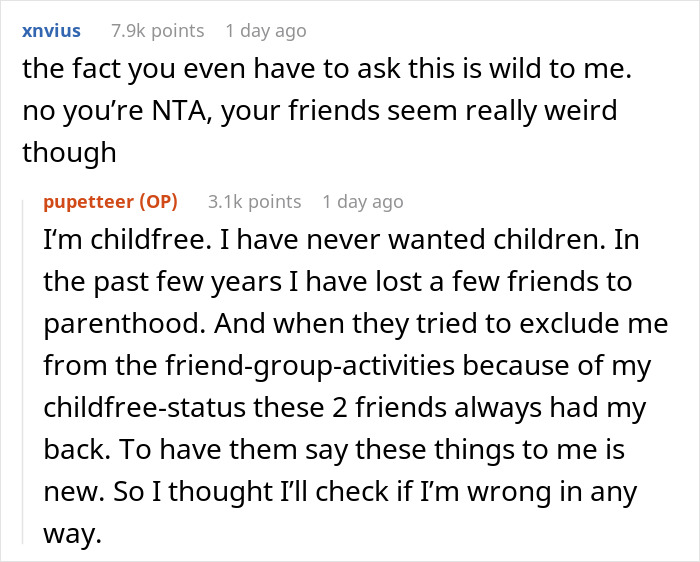
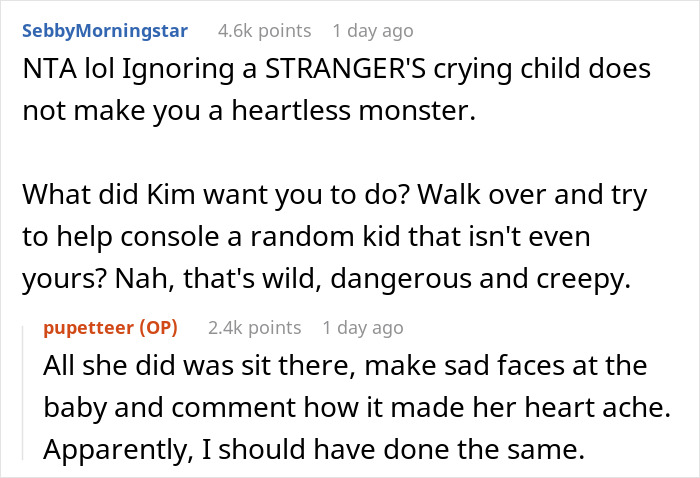


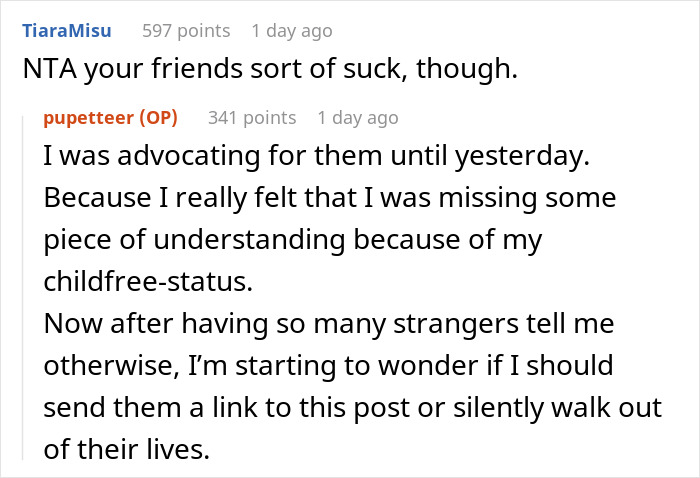


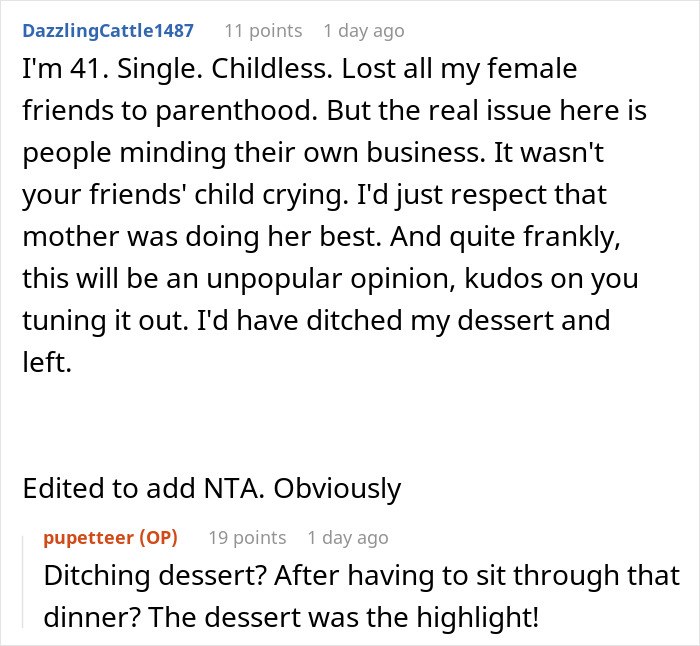


The consensus among the commenters was NTA
